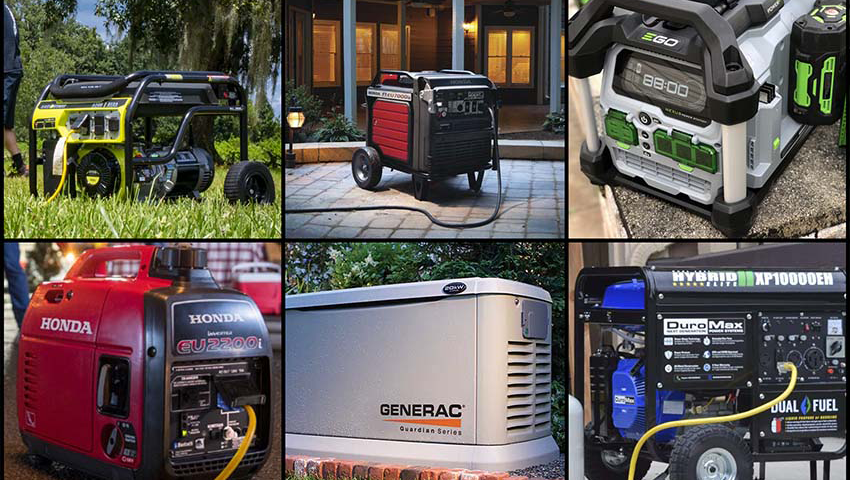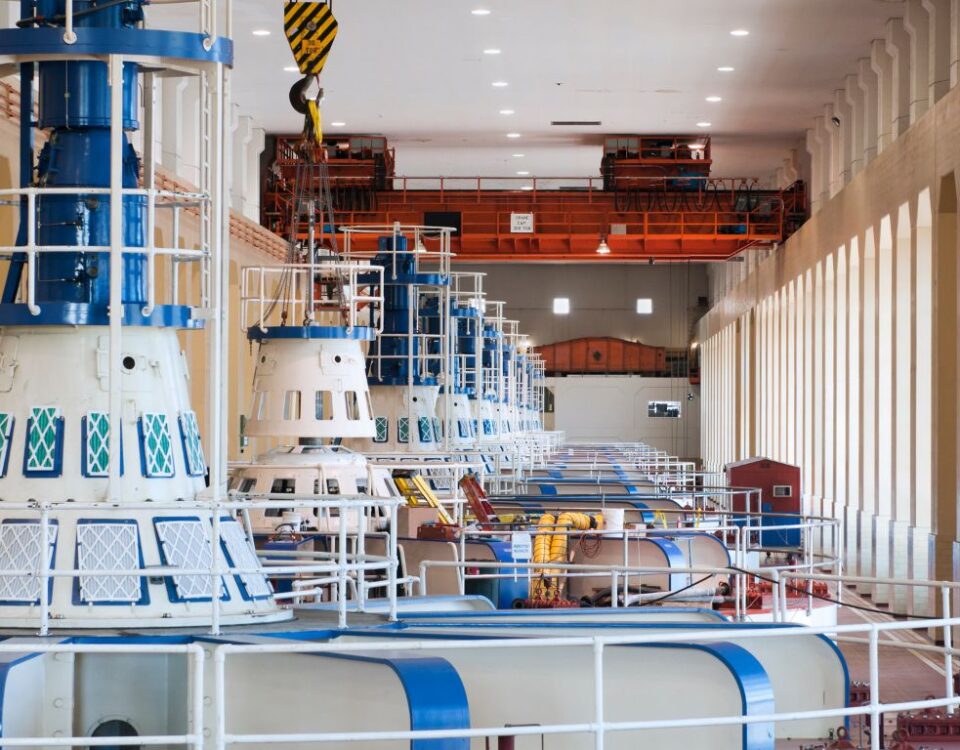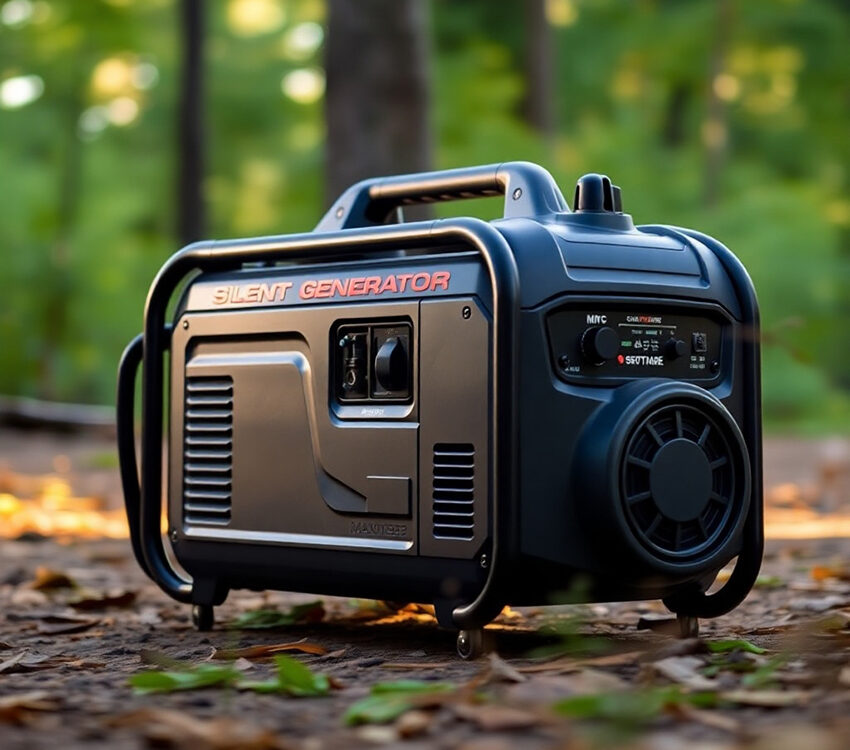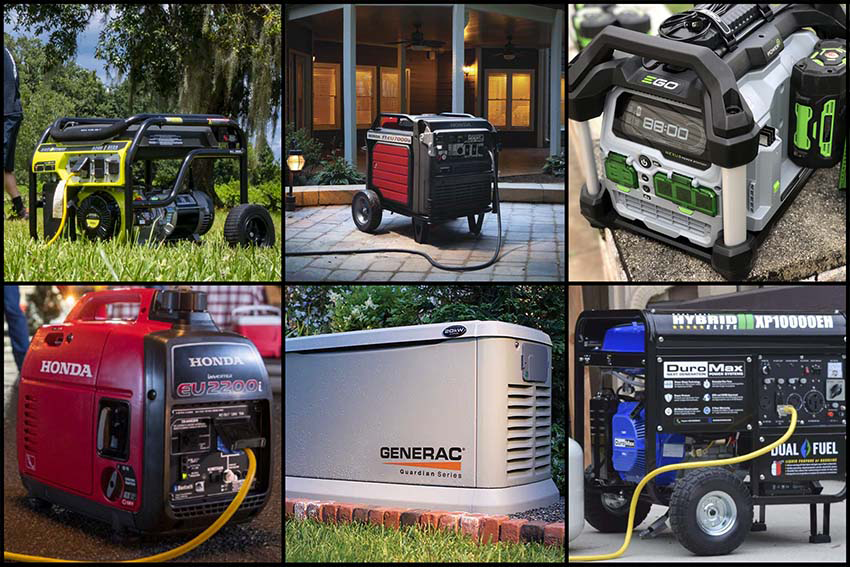
In a world increasingly reliant on consistent and uninterrupted power, the role of generators has become vital in both domestic and commercial spheres. The Generator Flow team recognizes the significance of this need and presents an essential guide aimed at demystifying the complex world of generators. Our focus lies in pinpointing the best generator brands and identifying the leading portable generators that cater to a range of needs. From providing emergency backup power during outages to powering recreational outdoor activities and supporting critical industrial applications, the right generator can make a significant difference. This guide aims to break down the key features, performance metrics, and reliability aspects of various brands, empowering you to make an informed decision that aligns with your specific power requirements. Whether you’re a homeowner seeking a backup power solution, an outdoor enthusiast in need of portable energy, or a business looking for robust power support, understanding the nuances of these power-generating machines is crucial. Join us as we explore the dynamic world of generators.
1. Understanding Generators: Types and Uses
Generators are versatile power sources, coming in various forms to meet diverse needs. The most common types include standby, portable, inverter, and industrial generators, each serving unique purposes.
Standby Generators: These are permanently installed units, typically used in homes and businesses for emergency power during outages. Standby generators automatically activate when the main power supply is interrupted, ensuring a seamless transition to backup power. They are often powered by natural gas or propane and are known for their high power output and reliability.
Portable Generators: As the name suggests, these generators are designed for mobility and ease of use. Ideal for outdoor activities like camping or tailgating or use on job sites, Portable Generators are usually gasoline-powered and come in various sizes. Their versatility makes them a popular choice for temporary power needs.
Inverter Generators: These are a newer type of portable generator, offering more efficient and cleaner power suitable for sensitive electronic devices. Inverter Generators adjust the electrical output to match the demand, reducing fuel consumption and noise levels. They are perfect for camping and RV use and as a backup for essential home appliances.
Industrial Generators: Built for heavy-duty applications, industrial generators are used in sectors like construction, mining, and large-scale events. They are designed to provide high power output for extended periods and can run on various fuel types, including diesel, natural gas, and propane. Understanding these types, alongside factors such as power output, fuel type, and portability, is crucial in selecting the right generator. Each type caters to specific scenarios, from home backup solutions to providing energy in remote locations. The choice ultimately depends on your power needs, usage frequency, and the environment where the generator will be operated.
2. Criteria for Evaluating Generator Brands
When selecting a generator, the brand’s reputation and quality are as important as the specifications of the generator itself. Several vital criteria help in evaluating the best generator brands, ensuring you invest in a product that meets your specific needs effectively.
Build Quality: The durability and construction of a generator determine its longevity and reliability. High-quality materials and robust design are essential for withstanding varied environmental conditions and frequent use, especially for portable and industrial generators.
Power Output: The power output, measured in watts, is a primary consideration. It dictates the number of appliances or tools the generator can support simultaneously. Top brands offer a range of models with varied power outputs to suit different demands, from household essentials to industrial machinery.
Fuel Efficiency: Efficient fuel consumption is crucial for long-term cost-effectiveness and environmental considerations. Leading brands focus on providing generators that deliver maximum power with minimal fuel usage, reducing operational costs and carbon footprint.
Noise Level: Especially important for residential and recreational use, the noise level of a generator impacts its usability. Brands that invest in noise-reduction technologies offer more user-friendly options, which are essential in noise-sensitive environments.
Price: The cost of the generator must align with its features and longevity. Top brands often offer competitive pricing, but it’s crucial to balance initial investment with long-term value.
Customer Service: Access to responsive and helpful customer service is vital. Brands with a reputation for excellent customer support ensure peace of mind, especially when dealing with maintenance or warranty issues.
Warranty: A comprehensive warranty reflects a brand’s confidence in its product. It assures manufacturing defects and potential issues, making it a critical factor in the decision-making process. These criteria collectively help in identifying the best generator brand for your specific requirements, whether for residential backup, outdoor activities, or industrial use. It’s not just about finding a generator but choosing a brand that stands for quality, reliability, and customer satisfaction.
3. Top Generator Brands Overview
In the realm of generators, certain brands have established themselves as leaders through their commitment to quality, innovation, and customer satisfaction. Let’s explore some of the top generator brands: Honda, Generac, Yamaha, and others, delving into their history, product range, and unique features.
Honda: A Legacy of Reliability
For many years, Honda, a brand often associated with power tools and motors, has dominated the generator industry. Honda Generators, which range in size from tiny, portable machines perfect for camping to bigger models appropriate for home backup and industrial use, are well-known for their dependability and technological ingenuity. Honda generators are distinguished by their inverter technology, which offers steady, clean power that is safe for delicate devices. Honda is set apart in the market with its Eco-Throttle System, which maximizes fuel efficiency while reducing noise.
Generac: Powering Homes and Businesses
Generac, founded in 1959, has grown to become a key figure in residential and commercial power generation. Specializing in both portable and standby generators, Generac is particularly noted for its home backup generators that seamlessly integrate with home power systems. Their generators are known for their high power output and durability. Generac also leads in user-friendly features, like their Mobile Link technology, which allows users to monitor and manage their generators remotely.
Yamaha: Compact and Efficient
Yamaha, another powerhouse in the generator industry, offers compact, lightweight, and highly efficient generators. Yamaha’s inverter generators are top-rated for their quiet operation and fuel efficiency, making them ideal for camping, RV use, and emergency power sources. The Smart Throttle feature, which varies the engine speed based on load, enhances fuel efficiency and reduces noise.
Kohler: A Blend of Power and Innovation
Kohler generators, with a rich history dating back to the 1920s, have been a symbol of innovation and quality. Their product range covers residential, commercial, and industrial needs. Kohler is recognized for its robust build and ability to handle heavy loads, making it a preferred choice in critical applications. Kohler’s generators also feature PowerBoost Technology, allowing them to handle large starting loads without disrupting the power supply to other appliances.
Briggs & Stratton: Versatility and Value
From portable units for outdoor usage to backup generators for homes and businesses, Briggs & Stratton offers a wide selection of generators ideal for varied uses. Briggs & Stratton generators are well-known for their dependability and affordability. They combine simplicity and performance with features like InfoHub Wireless Monitoring and QuietPower Technology.
Champion: Innovative and Accessible
Champion Power Equipment, though a relatively newer player, has quickly gained a reputation for innovative and accessible generators. Their generators are known for their easy start features, making them user-friendly for all types of consumers. Champion excels in offering a diverse range of models, from small, portable units to whole-house standby generators, all providing exceptional value for money.
Each of these brands stands out for their unique features and commitment to quality, ensuring they meet a wide array of power generation needs. Whether it’s for residential backup, outdoor recreation, or industrial applications, these brands have proven their worth in the generator market through years of innovation, customer satisfaction, and reliable performance.
Generator Brand Comparison Chart
| Brand | Power Output Range (Watts) | Key Features | Fuel Types | Price Range | Best For |
| Honda | 1,000 – 10,000 | Eco-Throttle, Inverter Technology | Gasoline, Propane | $$$ – $$$ | Home Use, Camping |
| Generac | 800 – 20,000 | Mobile Link Technology, Durable | Gasoline, Diesel, Propane | $$$ – $$$ | Home Backup, Business |
| Yamaha | 1,000 – 12,500 | Noise Block, Smart Throttle | Gasoline, Propane | $$$ – $$$ | RV Use, Outdoor Activities |
| Kohler | 2,000 – 30,000 | PowerBoost Technology, Robust Build | Gasoline, Diesel, Propane | $$$ – $$$ | Industrial, Heavy-Duty Use |
| Briggs & Stratton | 1,200 – 12,000 | QuietPower Technology, InfoHub Wireless Monitoring | Gasoline, Propane | $$$ – $$$ | General Use, Outdoor |
| Champion | 1,200 – 14,000 | Dual Fuel, Easy Start | Gasoline, Propane, Dual | $$$ – $$$ | Versatile Use, Emergency Backup |
4. Best Brand Portable Generators
Portable generators are a vital tool for a variety of applications, from camping and tailgating to emergency power backup. The best portable generators strike a balance between power, portability, fuel efficiency, and value. Here, we focus on brands that excel in the portable generator segment, highlighting models that stand out for their distinctive features.
Honda: Synonymous with Quality
Honda continues to be a top choice in the portable generator market. Their models, like the Honda EU2200i, are a testament to their commitment to quality. Known for its lightweight and compact design, the EU2200i is remarkably fuel-efficient and operates at impressively low noise levels. Honda’s inverter technology ensures clean power output suitable for sensitive electronic devices. The brand’s focus on eco-friendly operations, with models featuring Eco-Throttle systems, enhances fuel efficiency and reduces emissions.
Yamaha: Compact and Efficient
Yamaha’s portable generators, such as the Yamaha EF2000iSv2, offer a compelling combination of compactness and efficiency. This model stands out for its lightweight design, making it ideal for camping and outdoor events. Yamaha’s Noise Block technology ensures quiet operation, a crucial feature for use in noise-sensitive environments. The Smart Throttle feature varies engine speed based on load, improving fuel economy and reducing wear.
Generac: Power and Versatility
Generac’s range of portable generators is known for versatility and robust power. The Generac GP Series, for instance, offers models that cater to various power needs while maintaining portability. These generators are designed for easy transportation and are equipped with large fuel tanks for extended run times, making them suitable for prolonged outdoor activities and emergency backup.
Westinghouse: Innovative and Reliable
Westinghouse has made a name for itself in the portable generator market with models like the Westinghouse iGen Series. These generators are celebrated for their innovative features, including digital inverter technology for clean and stable power. The iGen Series is known for its fuel efficiency and user-friendly design, featuring intuitive controls and easy monitoring systems.
Champion: User-Friendly and Diverse
Champion Power Equipment offers a wide range of portable generators, noted for their user-friendly features and diverse options. Models like the Champion 3400-Watt Dual Fuel Inverter Generator offer versatility with dual fuel capability, allowing operation on either gasoline or propane. Champion generators are designed for easy start-up, making them accessible to a broad range of users.
When selecting a portable generator, factors like weight, size, noise level, and ease of use are paramount. The best brands in portable generators offer models that not only meet these criteria but also provide reliable performance, fuel efficiency, and excellent value for money. Whether for recreational use, work sites, or emergency backup, these brands have proven to offer some of the most dependable and convenient portable generators on the market.
5. Making the Right Choice: Tips for Buyers
Selecting the ideal generator is a multifaceted decision that goes beyond brand reputation. It’s about finding a generator that aligns with your specific needs. Here are some practical tips to help you make an informed choice:
Assess Your Power Needs: Start by determining the wattage requirements of the appliances and tools you plan to run. Generators are rated by the watts they produce, and it’s crucial to choose one that can handle your total load. Consider both starting and running watts, as some appliances require more power to start.
Understand Fuel Options: Generators typically run on gasoline, diesel, propane, or natural gas. Each fuel type has its advantages and limitations. Gasoline is widely available, but there may be better options for long-term storage. Diesel generators are known for efficiency and longevity. Propane and natural gas offer cleaner burning and longer shelf life but may only be as readily available in some areas.
Consider Portability: If you need a generator for different locations, consider its weight, size, and whether it has wheels or handles for more effortless movement. Portable generators are ideal for camping and job sites and as backup power for homes.
Look for Additional Features: Features like multiple outlets offer flexibility in connecting various devices. Inverter technology is crucial for powering sensitive electronics as it provides stable and clean power. Easy start mechanisms, like electric start or automatic start, add convenience, especially in emergencies.
Noise Level: For residential use or camping, a quieter generator is more suitable. Check the decibel rating; inverter generators generally operate more quietly.
Safety Features: Look for generators with safety features like low-oil shut-off, overload protection, and carbon monoxide detection for added security.
Warranty and Support: A strong warranty and accessible customer support reflect the manufacturer’s confidence in their product and ensure peace of mind. By taking these factors into account, you can choose a generator that not only meets your power requirements but also fits your lifestyle and usage scenarios. Remember, the best generator is one that balances power needs with functionality, safety, and convenience.
In summary, the journey to selecting the ideal generator is a critical one, and the Generator Flow team hopes this guide has illuminated the path. The right generator, chosen from a reputable brand and matched to your specific needs, can indeed be a game-changer. It offers more than just power; it brings convenience, safety, and efficiency into your life. Whether for emergency backup, recreational purposes, or professional applications, the perfect generator stands as a steadfast ally, ready to deliver power whenever and wherever it’s needed. Remember, the key lies in considering not only the brand but also the various factors like power output, fuel efficiency, portability, and additional features that align with your specific requirements. Trust in the insights provided by the Generator Flow team, and embark confidently on your journey to find the generator that will not just meet but exceed your expectations.
Frequently Asked Questions
When selecting a generator, consider power output, fuel type, portability, noise level, fuel efficiency, and the specific needs it will serve, like emergency power, recreational use, or industrial applications.
Yes, portable generators can be used for home backup, especially for powering essential appliances during outages. However, for larger homes or more extensive power needs, a standby generator might be more appropriate.
Calculate the total wattage of the appliances and equipment you plan to power. Add up the running watts and account for the starting watts of items with motors. Choose a generator with a wattage rating exceeding the total calculated wattage.
Inverter generators provide cleaner power suitable for sensitive electronic devices. They are generally quieter and more fuel-efficient than conventional generators but tend to have lower power output and are more expensive.
Fuel efficiency is crucial for minimizing operational costs and reducing the environmental impact. Efficient generators consume less fuel for the power they produce, making them more economical and eco-friendly over time.
Absolutely. Portable generators are ideal for camping and RV use due to their mobility and versatility. Inverter generators are often recommended for these uses due to their quiet operation and clean power output.
Regular maintenance includes checking and changing oil, cleaning or replacing air filters, inspecting spark plugs, and ensuring the unit is stored correctly when not in use. Always refer to the manufacturer’s guidelines.
Yes, some generators can run on propane, natural gas, and even dual-fuel models that can switch between gasoline and propane.
Noise levels can vary significantly. Inverter generators are typically quieter than conventional ones. Look for models with noise-reducing features if operating in residential areas or noise-sensitive environments.
Yes, a warranty is crucial as it protects against manufacturing defects and reliability issues. A comprehensive warranty is often a sign of the manufacturer’s confidence in their product.





